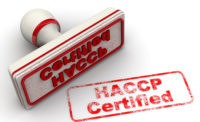Regulations & Legislation
Notifications under section 418.2 of FSIS regulations and recalls

It may be me, but it seems like there have been even more recalls this year. I have been assured that this increase is not related to the “Notification” requirement mandated by 9 CFR § 418.2. That said, even if the regulation has not caused an increase in recalls, establishments that do not proceed cautiously in providing this notification may find themselves in a recall.
Section 418.2 requires official establishments to notify the Food Safety and Inspection Service (FSIS) District Office whenever the establishment believes or has reason to believe it has shipped or received adulterated or misbranded product in interstate commerce. It must be emphasized, the requirement is not dependent upon whether the adulteration or misbranding poses any safety concern. Even aesthetic adulteration or technical misbranding must be reported to the district.
The regulation requires the notification to include: “the type, amount, origin, and destination of the adulterated or misbranded product.” There is no general FSIS form for making the notification. Each district has developed its own procedures. At least one district suggests that the establishment notify using the “FSIS recall worksheets.” One can envision how submission of a recall worksheet to FSIS would create the impression a recall is needed (please note, even in this district, the establishment is not required to use the worksheet).
After establishment notification, the district will convey the information to the FSIS recall staff at headquarters. Based on the information in the notification (which is the only information available), the recall staff will make a decision whether to convene a recall committee. If convened, the recall committee will review the information provided and determine whether to request a recall. If a recall will be requested, the staff will contact the establishment (which may have heard nothing since the notification was submitted).
Given the notification may be an establishment’s only opportunity to provide evidence to mitigate against a recall, it should proceed carefully.
Do Not Automatically Report — Investigate First:
The regulation mandates notification if the establishment “believes or has reason to believe” it shipped/received the violative product. Do not report unless you believe violative product was shipped/received by you. An isolated customer complaint should be investigated, but should not be adopted automatically as the truth.
Time for Investigation:
The requirement is only triggered when the establishment determines (or should have determined) violative product was shipped/received. There is no time specified in the regulation for the investigation or notification. As a rule of thumb, the investigation should proceed in a prompt manner and notification be provided no later than 24 hours after the determination violative product was shipped/received.
Contents of Notification:
The regulation specifies the minimum requirements of the notification, however, an establishment should not stop there. The notification itself may be the one opportunity to explain why a recall is unnecessary.
• Explain what happened, and from that, the likely scope of implicated product.
• Provide evidence as to the true risk, if any, posed by the deviation.
• Indicate where product is (recall less likely if product never reached consumer, should not be a recall if all product is back within establishment control).
Labeling — Do Not Forget Temporary Label Approvals:
Since notification must occur for any mislabeling, even technical misbranding, the establishment should seek temporary label approval before notification to demonstrate the deviation would not result in a recall (FSIS will not conduct a recall for misbranding if the label would be eligible for temporary label approval).
Do Not Be Passive:
After providing the notification, do not assume no news is good news. FSIS recall staff is extremely busy and may not consider a potential recall that does not pose a food-safety risk for as much as a week. Maintaining communication with the district will avoid surprises. It also provides a means to respond to any recall staff questions that arise during their review.
Conclusion:
Recalls are a fact of life. However, an establishment should not end up with a recall that could have been avoided by providing a complete 418.2 notification.
Looking for a reprint of this article?
From high-res PDFs to custom plaques, order your copy today!






